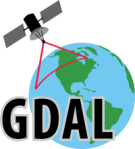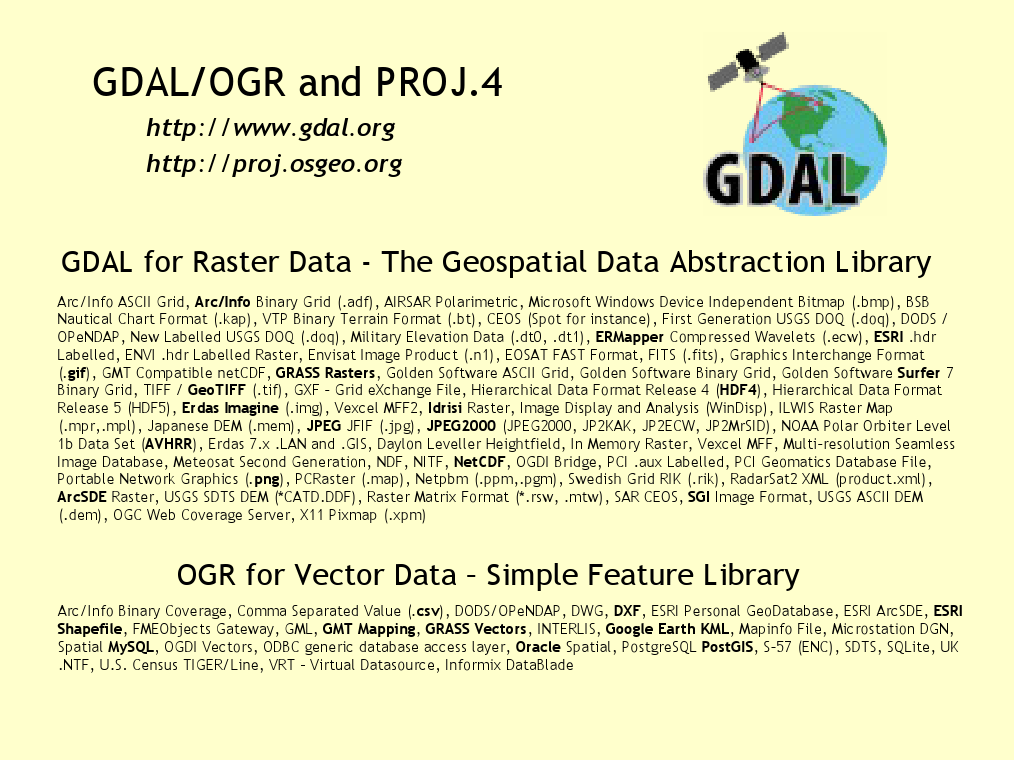

GDAL/OGR¶
About¶
Geospatial Data Abstraction Library (GDAL/OGR) provides command-line utilities to translate and process a wide range of raster and vector geospatial data formats.
The utilities are based upon a cross platform, C++ library, accessible via numerous programming languages. As a library, it presents a single abstract data model to the calling application for all supported formats.
GDAL/OGR is the most widely used geospatial data access library. It provides the primary data access engine for many applications including MapServer, GRASS, QGIS, and OpenEV. It is also utilized by packages such as OSSIM, Cadcorp SIS, FME, Google Earth, VTP, Thuban, ILWIS, MapGuide and ArcGIS.

Core Features¶
Command-line utilities for data translation, image warping, subsetting, and various other common tasks
Highly efficient raster data access, taking advantage of tiling and overviews
Support for large files - larger than 4GB
Library access from Python, Java, and C#
Coordinate system engine built on PROJ and OGC Well Known Text coordinate system descriptions
Popular Supported Formats¶
GDAL supports over 140 raster formats, and OGR over 80 vector formats.
These include:
Raster: GeoTIFF / COG, HDF, NetCDF, GeoPackage, JPEG2000, ECW, ENVI, KEA, MrSID, DTED, NITF and more …
Vector: GeoPackage, ESRI Shapefile, GeoJSON, PostGIS, (Geo)Parquet, ESRI File Geodatabase, FlatGeobuf, GML, AutoCAD DWG, MapInfo, DGN, Oracle Spatial, and more …
Implemented Standards¶
The OGR vector data model is compliant with the OGC Simple Features specification.
Details¶
Website: https://gdal.org/
License: X/MIT style Open Source license
Software Version: 3.11.4
Supported Platforms: Windows, Linux, Mac
API Interfaces: C, C++, Python, Java, C#
Support: https://lists.osgeo.org/mailman/listinfo/gdal-dev, https://www.osgeo.org/service-providers/
